A personal loan is an unsecured loan you can use for many purposes without needing collateral. Unlike business loans, which are specifically designed for business-related expenses such as expansion, equipment purchases, or working capital and have different eligibility criteria, personal loans are intended for personal use only. In this article, you’ll learn what personal loans are, their benefits, and how to apply online swiftly.
Key Takeaways
- Personal loans are unsecured, flexible financing options available for various purposes like medical emergencies, weddings, and debt consolidation.
- The online application process for personal loans is quick and typically requires minimal documentation, with funds available within 24 to 48 hours upon approval.
- Eligibility for personal loans hinges on factors like age, income, credit score, and employment history, while maintaining a good credit score can significantly enhance approval chances.
- To get personal loan, you must meet specific eligibility criteria such as minimum income and credit score requirements; the maximum loan amount you can get personal loan for often depends on your creditworthiness and income level.
Understanding Personal Loans
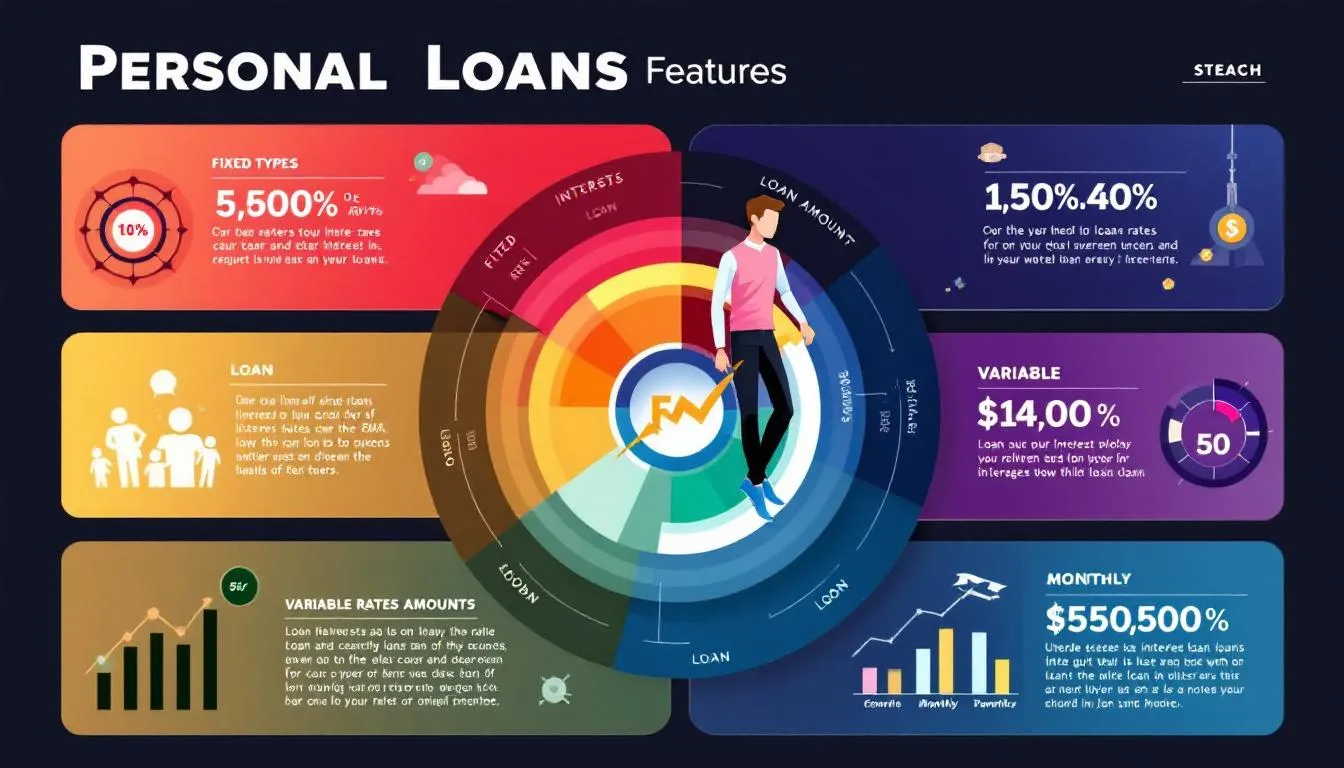
A personal loan is an unsecured loan borrowing option that provides a lump sum of money for personal use, which borrowers must repay in installments. Unlike secured loans, personal loans do not require collateral, making them accessible to a wider range of individuals. Upon approval, the personal loan amount is deposited directly into the borrower’s bank account, ready to be used for various financial needs. The typical range of personal loan offered by banks varies, with minimum amounts starting from as low as ₹10,000 and maximum amounts going up to ₹40 lakh or more, depending on the lender. Understanding how to get a personal loan work can help borrowers make informed decisions about a bank personal loan and consider the best personal loan offer available.
Personal loans offer flexibility and can be used for a multitude of purposes, including:
- Covering medical emergencies
- Wedding expenses
- Funding vacations
- Home renovations They are also a popular choice for debt consolidation, allowing borrowers to manage their finances more effectively by combining multiple debts into a single, manageable payment.
The ease of access and the ability to cover unexpected expenses make personal loans an attractive option for many. Some banks also provide pre approved personal loan options to select customers, enabling faster processing and instant disbursal through a simple online application. Lenders typically approve personal loans based on the applicant’s credit score and income verification, ensuring that borrowers can manage their repayments comfortably. The personal loan interest rate is determined by several factors, including your credit score, repayment history, principal amount, and loan tenure. This flexibility and accessibility are what make personal loans a go-to solution for various financial needs.
It is important to note that personal loans do not provide any tax benefits or deductions.
How to Apply for a Personal Loan Online
Applying for a personal loan online is a straightforward and quick online personal loan application process. Start by:
- Visiting the designated online portal of the bank or financial institution offering the loan.
- Sharing your bank account details for disbursement.
- Completing a video KYC (Know Your Customer) process to verify your identity. To apply for personal loan, ensure you have all necessary documents ready.
Many lenders now offer instant loan approval and disbursal, allowing you to receive funds within minutes with minimal documentation required.
The entire application process is designed to be completed in just a few minutes, eliminating the need for physical paperwork.
Once your application is reviewed and approved, you will need to e-sign the loan agreement and set up auto-payment for your EMIs (Equated Monthly Installments). Many banks offer instant disbursal of funds after approval, ensuring that you have access to the required loan amount as quickly as possible.
This seamless online process saves time and allows you to apply for a personal loan from the comfort of your home.
Key Benefits of Instant Personal Loans
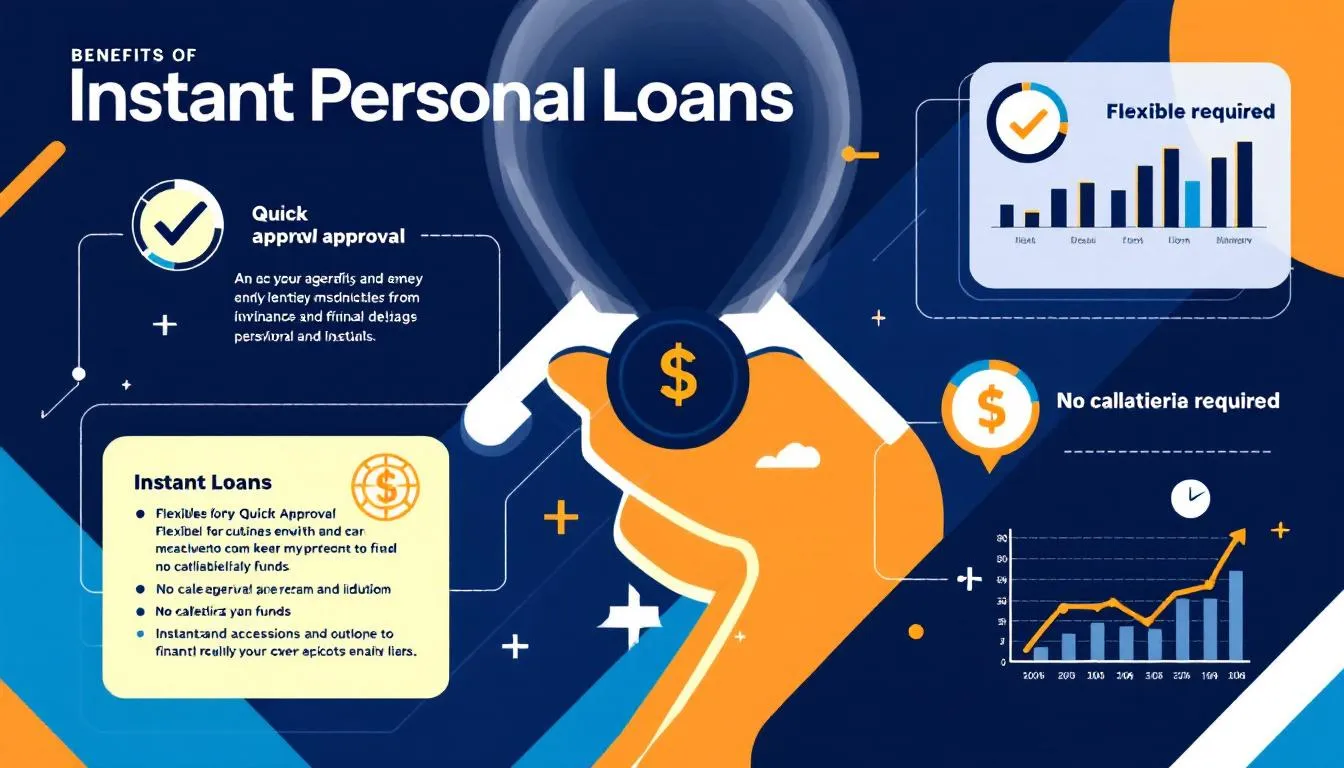
One of the primary benefits of instant personal loans is the speed of approval and disbursal:
- Funds can be available within 24 to 48 hours after application approval, making it an ideal solution for urgent financial needs.
- The approval process is swift and efficient.
- Often requires minimal documentation, which makes it accessible to a broader range of borrowers. Additionally, instant approval pre approved personal loans can streamline the borrowing experience.
Final approval and disbursal of funds are at the sole discretion of the bank or lender.
Another significant advantage is the flexibility offered by personal loans. Borrowers can use the funds for various purposes, including:
- home renovations
- home renovation
- debt consolidation
- unexpected expenses The fixed repayment schedule allows for better financial planning, as borrowers know exactly how much they need to pay each month.
Additionally, many banks offer competitive interest rates and transparent terms, ensuring that borrowers are fully aware of their financial commitments.
Collateral-Free Nature of Personal Loans
One of the standout features of a personal loan online is its collateral-free nature. Unlike secured loans, personal loans are unsecured loans, meaning you don’t need to pledge any assets or property to access funds. This makes instant personal loan options especially appealing for individuals who may not have significant assets or who prefer not to risk their valuables. With instant personal loan online services, you can quickly obtain the required loan amount for a wide range of personal expenses, from medical emergencies and home renovations to wedding expenses and more.
The absence of collateral requirements provides borrowers with true financial freedom and flexibility. You can use the loan amount as you see fit, whether it’s to cover urgent medical emergencies, finance home renovations, or manage wedding expenses. The process is designed to be fast and convenient, allowing you to access funds when you need them most, without the stress of securing your loan against personal property. This flexibility is a key reason why personal loans remain a popular choice for those seeking quick and easy financial solutions.
Eligibility Criteria for Personal Loans
To qualify for a personal loan, applicants must meet specific personal loan eligibility criteria:
- Be at least 21 years old and not older than 60 years at the time of loan maturity.
- Salaried applicants typically need a minimum monthly income of ₹25,000.
- Applicants in smaller cities may have a minimum income threshold of ₹15,000.
- Having a graduation degree is preferred but not mandatory.
Work experience also plays a crucial role in loan approval. Key factors lenders consider include:
- A minimum of one year of work experience to demonstrate job stability.
- The applicant’s credit score, with a score above 750 being favorable.
- The debt-to-income ratio, ideally less than 40%.
Maintaining these criteria can significantly enhance your chances of outstanding loan eligibility approval.
Income verification and a stable employment history support your application, giving lenders confidence in your ability to manage repayments.
Required Documents for Personal Loan Application
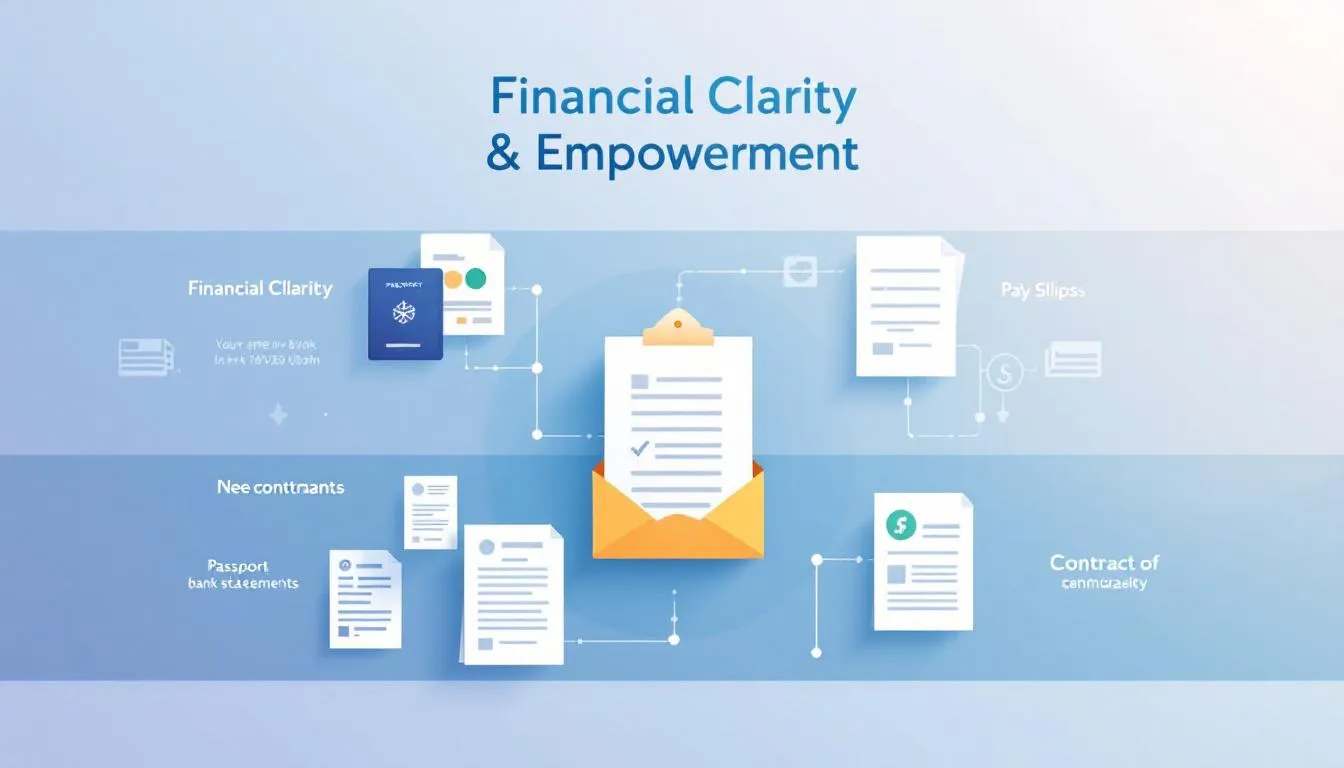
When applying for a personal loan, you’ll need to submit a few basic documents. These typically include:
- Identification proof, such as a passport or Aadhaar card
- Income proof, such as salary slips or bank statements
- A completed application form with your personal details
Self-employed applicants need to provide additional documentation, including proof of business operation and income tax returns. Bank statements from their Current and Primary Savings Accounts might also be required.
In some cases, lenders may ask for collateral details for higher loan amounts or a signed declaration regarding any existing loans or debts. Submitting all necessary documents upfront ensures a smooth application process, leading to quicker approval and fund disbursal, especially when considering collateral free loans.
Personal Loan Interest Rates
Personal loan interest rates can differ widely, and the personal loan interest rate is determined by several factors such as your CIBIL score, repayment history, principal amount, and loan tenure. For example, Axis Bank offers interest rates from 11.25% to 22% per annum. Generally, personal loan interest rates in India range between 10% and 44%, depending on the borrower’s creditworthiness, income, and existing customer relationships.
Higher incomes often lead to lower interest rates, as they indicate a lower repayment risk. Existing customers of a bank may receive attractive interest rates, and promotional offers during specific periods can also provide temporary reductions.
It’s essential to consider the total cost of the loan, including processing fees and other charges, to avoid financial strain. Understanding these factors helps borrowers make informed decisions and choose the most cost-effective loan option.
Personal Loan EMI Calculator
A Personal Loan EMI Calculator is an invaluable tool for borrowers. It helps estimate monthly repayments based on the loan amount, tenure, and interest rate. To use the calculator, simply enter the loan amount you intend to borrow, select the tenure (ranging from 12 to 84 months), and input the applicable interest rate.
The EMI calculator allows borrowers to modify these variables to assess various repayment scenarios. It uses a specific formula to calculate the monthly installment: EMI = [P x R x (1+R)^N] / [(1+R)^N-1], where ‘P’ is the principal amount, ‘R’ is the interest rate, and ‘N’ is the loan tenure.
This tool provides a clear picture of the financial commitment involved, helping borrowers plan their finances effectively.
Repayment Options for Personal Loans
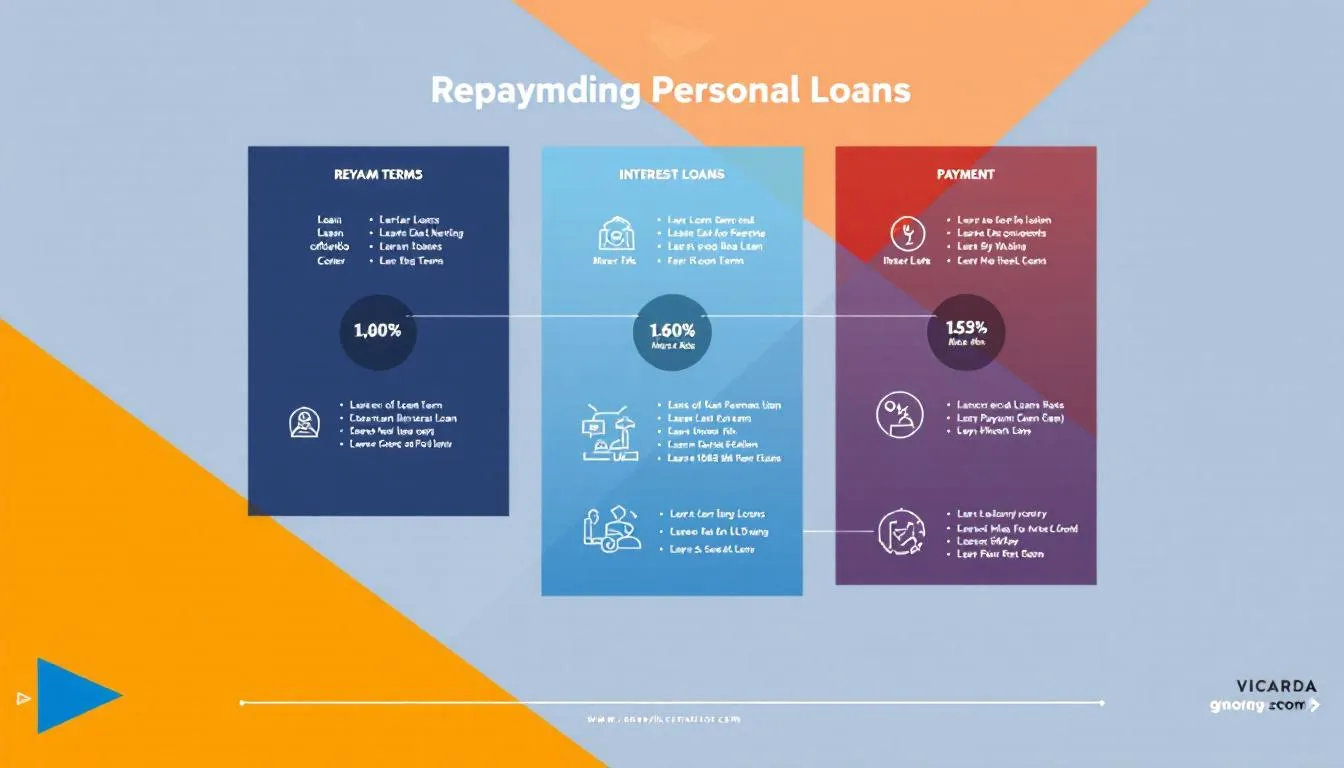
Personal loans offer a range of flexible repayment options to suit different financial circumstances. The typical repayment structure involves fixed monthly instalment payments that cover both the principal and interest. An EMI calculator helps borrowers view their monthly payment, total interest payable, and overall repayment amount instantly.
Borrowers also have the option to make additional payments towards the principal amount, reducing the total interest paid over the loan duration. Some lenders allow partial repayments or foreclosures, enabling borrowers to pay off their entire loan amount before the end of the loan term. However, it’s important to be aware of any additional charges that may apply to these options.
Flexible repayment schedules provide borrowers with the ability to manage their finances more effectively and reduce their overall debt burden, including considerations for repayment tenure.
Personal Loan for Specific Needs
Personal loans are versatile financial tools that can be tailored to meet specific needs. Whether you’re planning a wedding, going on a dream vacation, or facing a medical emergency, personal loans provide the necessary funds without straining your savings.
Let’s explore how personal loans can be used for these specific needs.
Wedding Expenses
Weddings can be expensive, but personal loans can provide financial assistance to cover all the necessary expenses, from venue booking to catering and decorations. This alleviates the burden on your savings, allowing you to enjoy your special day without financial stress.
Travel and Vacation
Planning a dream vacation involves various costs, such as flights, accommodations, and activities. Personal loans can cover these expenses, enabling you to book premium accommodations and unique experiences.
A few clicks can secure the access funds needed for just a few clicks for a memorable trip.
Medical Emergencies
Medical emergencies often require immediate funding to ensure timely care. Personal loans offer quick access to funds, covering medical bills and treatment costs without delay. This financial support, including an emergency loan, is crucial in avoiding delays in treatment due to financial constraints.
Personal Loan Amount and Bank Account Requirements
When you apply for a personal loan, the loan amount you can access typically ranges from ₹50,000 up to ₹50,00,000, depending on your eligibility and the lender’s policies. To apply for a personal loan, you generally need to have an active bank account—either a salary account or a savings account—with the lending bank. This ensures a smooth and direct transfer of the personal loan amount into your account, making the process both convenient and efficient.
Many banks also offer pre approved personal loans to their existing customers, allowing you to access funds with minimal documentation and in just a few clicks. This is especially helpful if you need to consolidate existing debts, cover unexpected medical expenses, or finance a dream vacation. The convenience of having the loan amount credited directly to your bank account means you can address your financial needs quickly, without unnecessary delays. Whether you’re managing personal expenses or planning for larger financial goals, personal loans provide a flexible and accessible solution.
The Personal Loan Agreement: What to Know Before You Sign
Before you finalize your personal loan, it’s crucial to thoroughly review the personal loan agreement. This document outlines all the important details, including the approved loan amount, interest rate, repayment tenure, and any processing fees or additional charges. Make sure you understand the personal loan eligibility criteria and confirm that you meet all the requirements before signing.
The agreement will specify your monthly instalments, known as personal loan EMI, which you’ll need to pay throughout the repayment tenure. It’s important to check the interest rates and how they are calculated, as well as the personal loan processing fee, which is usually a small percentage of the loan amount. Your credit score can also influence the interest rate you’re offered, so be sure to review this aspect carefully.
Take the time to read the loan agreement in detail and don’t hesitate to ask your lender about anything that’s unclear. Understanding your obligations, including the loan emi and repayment schedule, will help you avoid surprises and ensure you’re comfortable with your financial commitment. By being informed, you can confidently move forward with your personal loan and make the most of the financial support it provides.
Impact of Personal Loans on Credit Score
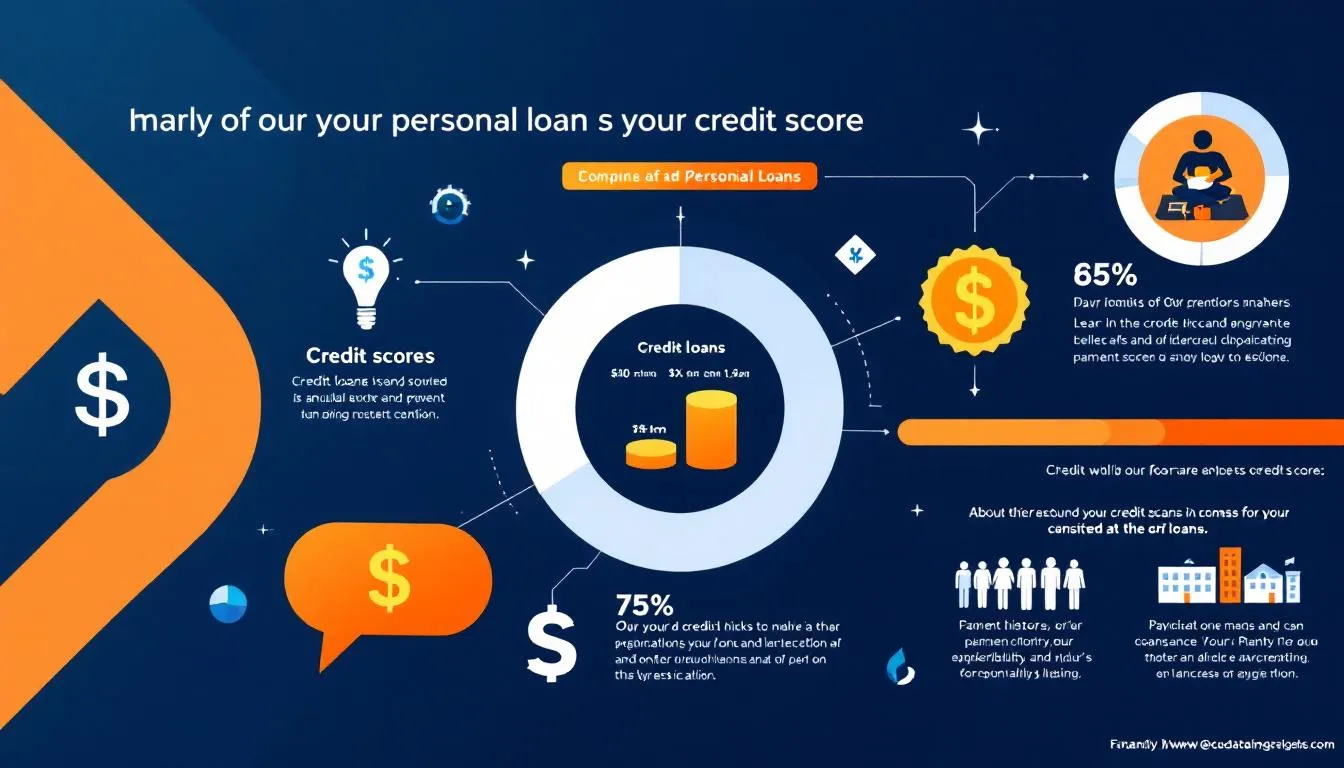
Taking a personal loan can have both positive and negative impacts on your credit score. Timely repayment of personal loans can significantly improve your credit score by demonstrating responsible borrowing behavior. Additionally, using personal loans can lower your credit utilization ratio, which is a critical factor in credit scoring.
However, missing a personal loan EMI can lead to payment charges and negatively impact your credit score. Prepaying a personal loan won’t harm your credit score and can be a good strategy if you have extra funds.
Understanding these impacts helps borrowers manage their loans more effectively and maintain a healthy credit score.
Tips to Improve Personal Loan Approval Chances
Improving your credit score is one of the most effective ways to enhance your chances of personal loan approval. Timely repayment of existing debts and reducing unnecessary expenses can significantly boost your credit score. Demonstrating multiple income streams can also improve your eligibility by showcasing your repayment capabilities.
If your personal loan application is rejected, it’s essential to understand the reasons behind the rejection. Common reasons include a low credit score or discrepancies in the application details. Enhance your chances of approval by improving your credit score and clearing existing debts. Additionally, ensure that your application details are accurate. If necessary, consider applying with a co-applicant.
How to Check Personal Loan Status
Tracking your personal loan application status is crucial to stay informed about the progress of your financial request. Most banks provide an online loan tracking page where you can check the status of your application. To do this, you’ll need to enter:
- Your registered mobile number
- Your name
- Your reference number
- Your date of birth
Staying updated on your loan status helps you stay aware of any additional steps needed to complete the process. It also helps manage expectations and plan your finances accordingly.
Top-Up and Balance Transfer Options
Top-up loans and balance transfer options offer additional financial flexibility for borrowers. A top-up loan allows you to access extra funds on your existing personal loans, enabling you to borrow beyond your original loan amount to meet further financial needs. To be eligible for a top-up loan on your existing personal loan, you must complete at least six EMI payments and meet the bank’s policy norms.
A balance transfer option enables you to switch your existing loan to another lender offering lower interest rates, thereby saving on interest costs. Upon approval, a pay order is issued to pay off the existing loan, and the new loan terms come into effect.
These options help borrowers manage their loans more effectively and reduce their financial burden.
Common Mistakes to Avoid When Applying for a Personal Loan
To ensure a smooth personal loan approval process, it’s important to be aware of and avoid common pitfalls:
- Not meeting the lender’s internal policies, which can lead to application rejection.
- Failing to meet the eligibility criteria.
- Providing inaccurate information. Ensuring that you meet the eligibility criteria and provide accurate information is crucial for successful approval.
Another common mistake is overlooking the total cost of the loan, including processing fees and other charges. Understanding the complete financial commitment helps avoid financial strain.
By being aware of these common mistakes and taking steps to avoid them, you can significantly increase your chances of securing a personal loan successfully.
Summary
In summary, instant personal loans offer a convenient and flexible solution for various financial needs. From understanding the application process to exploring the benefits and eligibility criteria, this guide provides all the information you need to make informed decisions about personal loans. By using tools like the EMI calculator and being aware of common mistakes, you can ensure a smooth and successful loan experience.
Consider the impact of personal loans on your credit score and follow tips to improve your chances of approval. Personal loans can provide the financial support you need, when you need it most, allowing you to manage your finances effectively and achieve your goals.
Frequently Asked Questions
What is the typical interest rate for personal loans in India?
The typical interest rate for personal loans in India ranges from 10% to 44% per annum, influenced by factors like creditworthiness and income. It’s essential to consider these elements when evaluating loan options.
What documents are required for applying for a personal loan?
To apply for a personal loan, you will typically need identification proof, income proof, and a completed application form. Self-employed individuals should also prepare documents like proof of business operation and bank statements.
How can I check the status of my personal loan application?
You can check the status of your personal loan application by visiting the bank’s official loan tracking page and entering your registered mobile number, name, or reference number. This will provide you with the most up-to-date information regarding your application.
Can personal loans be used for medical emergencies?
Yes, personal loans are a suitable option for covering medical emergencies, offering immediate access to funds for necessary treatments and expenses.
What are the eligibility criteria for personal loans?
To qualify for a personal loan, you generally need to be at least 21 years old, have a stable income, a good credit score, and a manageable debt-to-income ratio. Meeting these criteria increases your chances of approval.

